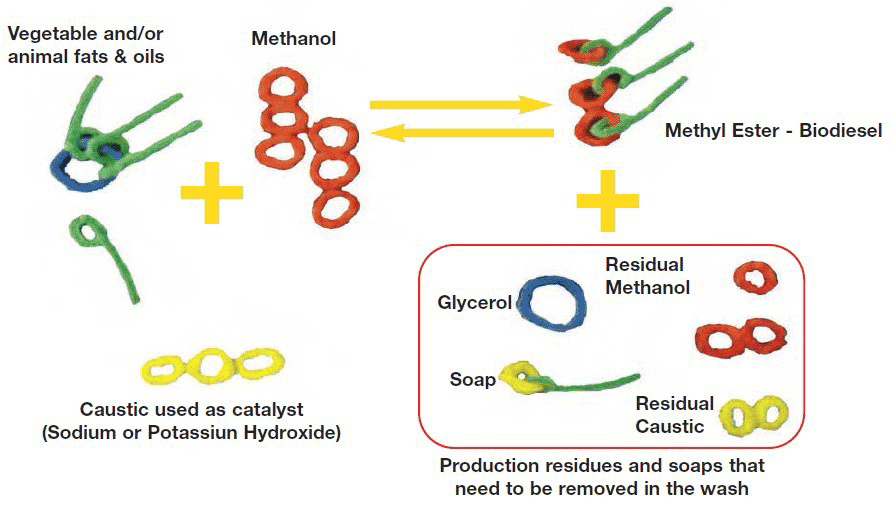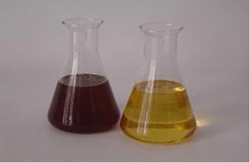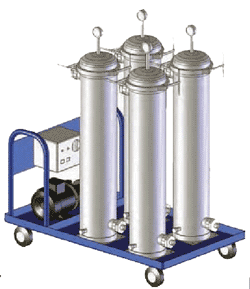Dry Wash and Clean of Biodiesel using Synthetic Magnesium Silicate
Synthesis Magnesium Silicate is refered as synthetic, amorphous form of magnesium silicate, it is safe, pure fine white compound with porous internal structure and enormous activated surface, products are ideal for removal of polar chemicals including
 Water
Water
EN ISO 12937 specifies a maximum of 500 ppm (parts per million) of water
in biodiesel. As FAME is hygroscopic it can pick up water in storage and
because of this there can be problems meeting the specification. At around
1500 ppm, the solubility limit is reached and the water becomes visible.
Producers still using traditional “wet wash” systems may find this aspect
of the EN Specification rather troublesome to achieve. Free water promotes
biological growth and adverse reaction to transesterification which undoes
biodiesel back into free fatty acids, which is disastrous in a fuel delivery
system. Synthetic Magnesium Silicate provide DRY WASH.
Soaps
Synthetic magnesium silicate provide effective purification which removes
residual soaps and metals which will lead to Carbon Residue.
 FFA
(Free Fatty Acid)
FFA
(Free Fatty Acid)
Synthetic Magnesium Silicate contribute to reduction of Acid value which
is a measure of free fatty acids contained in a fuel sample. The fewer
residual compounds, the lower the acid value of the biodiesel. Effective
purification using synthetic magnesium silicate will ensure that EN14104
is consistently achievable as is EN14214. Acid number will also increase
over time if the biodiesel is stored incorrectly. Acid value can be determined
rapidly using a TAN (Total Acid Number) drop test. A sample of biodiesel
is added to a red coloured chemical reagent and then another chemical
is added
until the colour changes to green. The number of drops taken is easily
converted to the Acid Number of the fuel.
Glycerides
Glycerides and water have density higher, and it often sink into the bottom
after settling. Both glyceride (other name like glycerin,  glycerol)
and water are polar chemicals which can be got rid of. It is vitally important
that a good transesterification reaction is achieved, as by achieving
a transformation of more than 96.5% limits the amount of residual mono,
di and triglycerides as
glycerol)
and water are polar chemicals which can be got rid of. It is vitally important
that a good transesterification reaction is achieved, as by achieving
a transformation of more than 96.5% limits the amount of residual mono,
di and triglycerides as
per EN14105. Failing to meet the specification implies low conversion
to ester and deposit formation on injectors and valves.
Ester
To pass EN14103 there must be a minimum ester transformation of 96.5%
FFA’s into Methyl Esters.
Alkali Metals
Both Sodium and Potassium are known as Alkali metals which are limited
to a combined 5ppm maximum. Magnesium Silicate can provide effective purification
processes enables the effective removal of residual traces of Sodium and
Potassium which can lead to levels exceeding the 5mg/kg upper limit required
by EN14109.
Phosphate
PO4 3- can be removed either it combine with K+
ion or not. That is what synthetic magnesium silicate is preferred to
be used to remove polyols catalyst residues during production process
of polyether polyols . Removal of production residues and chemicals to
pass EN14107 and also across the specification of
standards which combine to meet EN14214.
Drying & polishing system of biodiesel, our magnesium silicate could be a easy and good choice, usage is less than 10-15kg per 1000liter of biodiesel.
